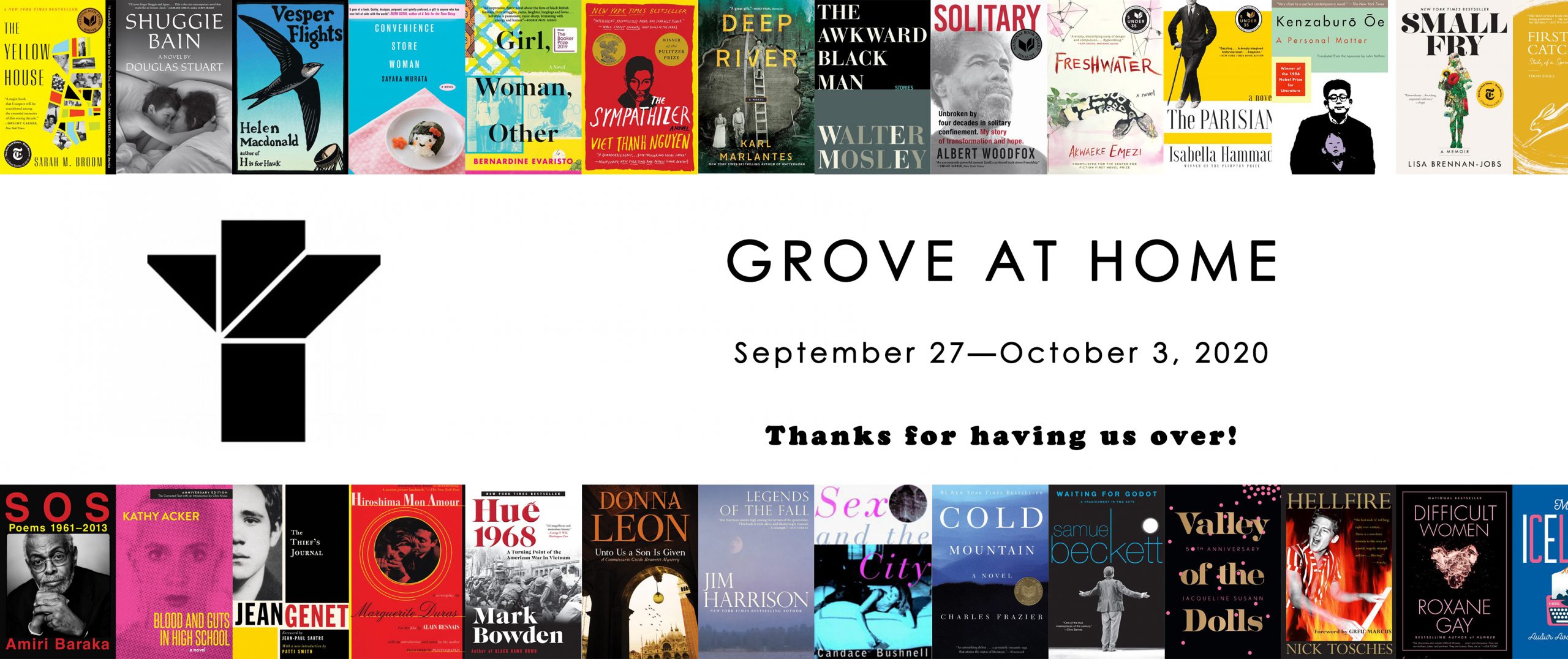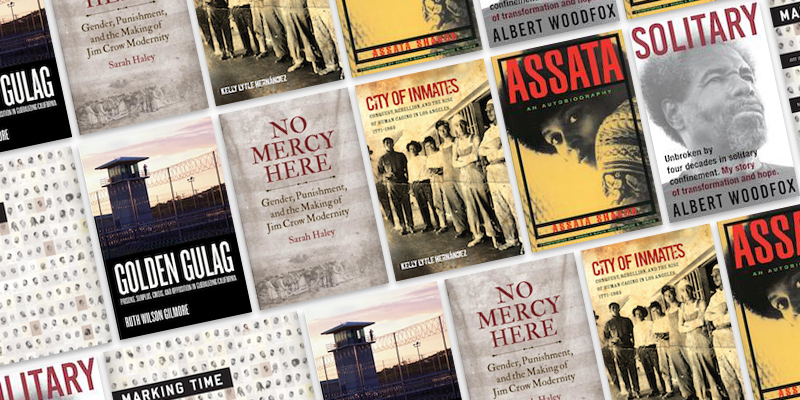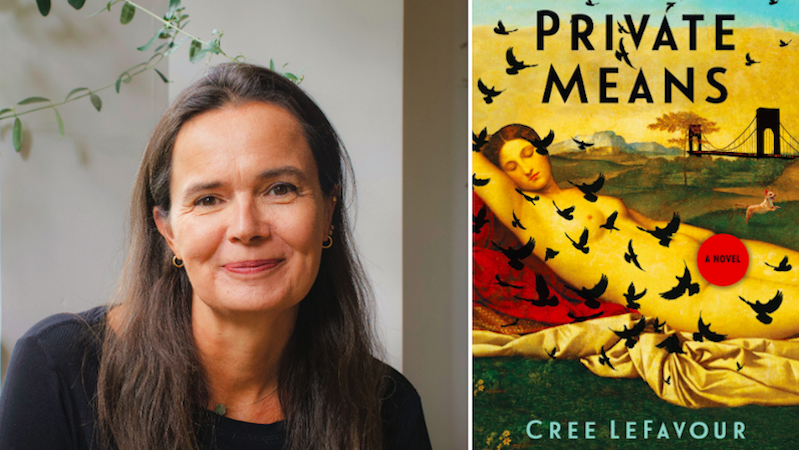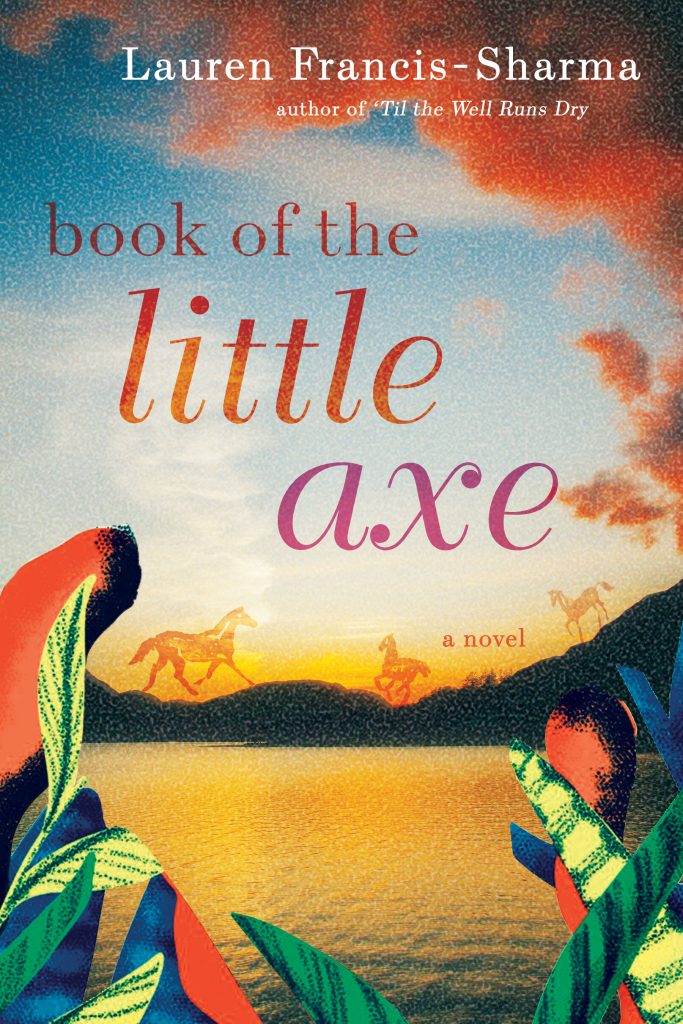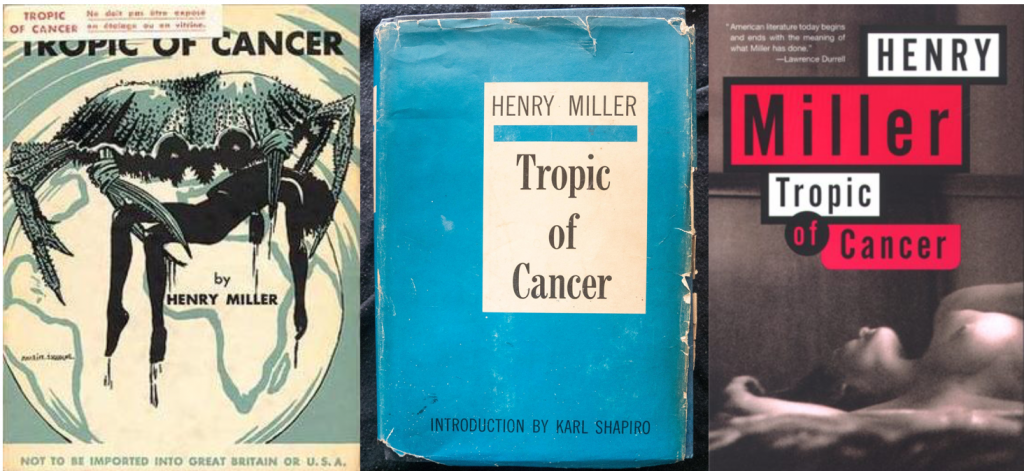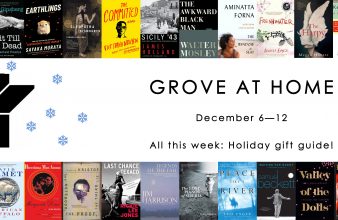News Room
Welcome to Grove at Home!
Every weekday, from now until we’re all out of the house again, we’ll be sharing a couple of links — some fresh, some from the vault — to say hi, remind you to keep reading, and let you know what’s on our minds.
Friday, October 2
Jim Harrison reads “Counting Birds”
There’s no bad day to hear the wonderful voice of Jim Harrison. Here he is reading his poem “Counting Birds.”
Read the National Book Foundation’s Literature for Justice list
For the past three years, the National Book Foundation has run a program called Literature for Justice, highlighting books useful in rethinking questions of criminal justice reform, incarceration, and policing. This year, the program’s judges — a distinguished panel that includes Princeton African American Studies professor Eddie S. Glaude, Jr. and poet Natalie Diaz, among others — have released seven new recommendations, including Albert Woodfox’s stirring memoir Solitary, which was also a finalist for both the National Book Award and the Pulitzer Prize. Literary Hub has complete coverage!
“In 2017, the National Book Foundation began the Literature for Justice program to highlight books that contribute to the dialogue around mass incarceration and justice. Since then, the need for those perspectives has only grown, and this year’s list adds seven more titles to help us think through these issues.” Continue reading…
Juliet Nicolson on her famous family
London’s 5×15 brings speakers to give talks governed by only two rules: no working from a script, and keep it to fifteen minutes. Four years ago, they hosted the wonderful Juliet Nicolson, who gave a moving, often funny talk about her own family, including her famous grandparents: the writer Vita Sackville-West, who served as the model for Orlando, the classic work by her lover Virginia Woolf, and her politician husband, Harold Nicolson.
Thursday, October 1
Big news: Shuggie Bain has been shortlisted for the Center for Fiction First Novel Prize!
We awoke this morning to the truly excellent news that Shuggie Bain, Douglas Stuart’s hugely acclaimed debut novel, has taken a bold step — from the Center for Fiction First Novel Prize longlist to the Center for Fiction First Novel Prize shortlist! We simply couldn’t be happier for our brilliant author, or his astonishing debut. Read more about it at the Center for Fiction website.
“‘As a cultural institution, we’ve faced unprecedented challenges this year,’ says Interim Executive Director Michael Roberts. ‘However, highlighting the remarkable work of emerging authors will always remain a defining feature of the Center for Fiction’s mission.’” Continue reading…
“What started as a bit of an inside joke… has become a thing””: Roxane Gay’s TED Talk
If there’s ever a bad time to spent twelve minutes hearing Roxane Gay discuss feminism, we’re not aware of it. In this classic 2015 TED Talk, she addresses her anger at the way women are treated all around the world, the importance of considering the additional identities women also inhabit, Beyoncé (“or as I call her, The Goddess”) and so, so much more. If you haven’t watched this, watch it.
A conversation with Norman Manea
What better day to watch this conversation with Norman Manea, author of October, Eight O’Clock, than October 1st? From his home on the campus of Bard College in the Hudson River Valley, Manea speaks on a variety of subjects — the state of current events in his native Romania, his memories of growing up during the Holocaust, and, of course, his writing.
Wednesday, September 30
Darcey Steinke on masks
Today in Literary Hub, the wonderful Darcey Steinke offers a robust meditation on one feature that has become part of our daily lives and seems likely to stick around for quite a while: masks. Candid, erudite, and good-humored, it’s a wonderful essay that looks to sources as varied as the experience of surgery, the philosophy of Emmanuel Levinas, reports of finding Jesus’s face in a Texan Pizza Hut billboard, and much more. Read it before you mask up for the day.
“The first masks were not used to avoid sickness but rather in death rituals. Anthropologists speculate that humans have been making masks for more then 30,000 years. The earliest surviving mask, kept in the Israel Museum in Jerusalem, is stone and dates from 7000 BC. It is not unlike Michael Myers’s mask in the Halloween movies; holes for eyes, a thin nose and a grinning mouth with teeth. Indentations around the edges suggest that, like a hockey mask, this first mask was strapped to the face, and served as a conduit for the dead to interface with the unknown.” Continue reading…
Sam Pickering: “The advice to praise the baker whose bread one eats strikes me as sensible”
Today is the 79th birthday of the great Sam Pickering! Pickering may be best known as the inspiration for Robin Williams’s character in Dead Poets Society — though he has often distanced himself from Williams’s portrayal — and is the author of more than thirty books. A legendary wit (when the Oxford English Dictionary more than twenty years ago announced it now considered split infinitives to be acceptable usage, Sam’s quip “I do not dine with those who split infinitives” made it into their press release) and beloved teacher, Sam has a lot to say about reading, writing, being alive, and what they all have to do with each other. Here he is offering some thoughts at the University of Connecticut, where he taught for many years, back in 1993.
Cree LeFavour takes the Book Marks Author Questionnaire!
It’s always bracing to hear from the wonderful Cree LeFavour, author of the memoir Lights On, Rats Out and, this summer, the acclaimed novel Private Means. Today, the geniuses at Book Marks have published Cree’s wonderful answers to their signature Author Questionnaire, a set of nineteen questions that offer a remarkable composite image of a writer’s mind.
“BM: What’s one book you wish you had read during your teenage years?
CLF: I was too much of a snob to read Judy Blume and I wish I had! I might have felt a bit less alone.
BM: Favorite book to give as a gift?
CLF: Jonathan Miles’s great early novel, Dear American Airlines. It has the virtue of being funny and profound.” Continue reading…
Tuesday, September 29
François Busnel answers a grab-bag of questions
Two weeks ago, we published America, an anthology of writing from the French magazine of the same name, assembled by its editor, the marvelous François Busnel. Busnel, famous as the host of the French literary talk show La Grande Librairie, created America after the election of Donald Trump in an effort to facilitate greater understanding between the two countries. Two years ago, with the magazine a success, he traveled to New York and shot this video at the Albertine book store, offering charming answers to a literal grab-bag of questions. From desert island reading to the question of e-books versus paper — and even the dread “Molière or Shakespeare?” — take a few minutes and get to know our man in Paris.
Lauren Francis-Sharma talks to American Libraries
When Lauren Francis-Sharma’s Book of the Little Axe was selected by the American Library Association and OverDrive as a Libraries Transform pick last month, we were tremendously excited! The novel is a powerful historical journey that takes us from Trinidad in 1796 to the American West in 1830, considering complex issues of lineage, belonging, race, and freedom. In this interview at American Libraries, Lauren discusses the book and how she wrote it, including the true historical roots of one of its most exciting characters.
“As I was reading and doing the research for this book, it occurred to me how many people from different places have come into the frame to build this world. In Trinidad, for instance, we have Africans, Spanish forces, and then the French and British coming in. With America, it’s very similar. The forces blend, and people end up working in some weird way and living together, and their languages become blended. When you think about it, that has been true since the beginning of time, and it’s true now.” Continue reading…
Happy birthday, Jerry Lee Lewis
Today is the 85th birthday of legendary rock-’n’-roller Jerry Lee Lewis. Besides his musical achievements — which include epochal recordings like “Great Balls of Fire” and “Whole Lotta Shakin’ Goin’ On” — Lewis is also the subject of what is widely regarded as perhaps the greatest rock biography ever written: Hellfire, by Nick Tosches. We were devastated last year by Nick’s passing; happily, his writing endures. Here’s some video of Nick waxing eloquent on Lewis and other musicians in an interview for the Guardian — and a little footage of Lewis, whom we, of course, wish a very happy birthday.
Monday, September 28
We’re starting the week off right: by wishing an extremely happy birthday to the indefatigable and inimitable Donna Leon! Donna is, of course, best known for creating the character of Commissario Guido Brunetti, the Venetian police detective who has become internationally beloved as, with elegance and decency, he sleuths his way through thirty (and, thankfully, counting) mysteries. Just before the Covid-19 lockdown hit this spring, Donna appeared at the Toronto Public Library to discuss her books, how Venice was faring as an early coronavirus hotspot, and more, with critic Johanna Schneller.
“The crimes change from book to book, but the ambiance and the sense of place doesn’t change much”
It being her big day, let’s spend a little more time with Donna Leon. In this short video produced by Dead Good, Donna talks about what it’s like to spend thirty years writing a series of novels whose characters hardly age. “He’s kind of kept in amber — and maybe that’s an image of Venice.”
It’s officially Banned Books Week! We’re proud of the profound role Grove Press has played in combatting censorship in the United States, taking the fight to publish vibrant literature of all kinds to bookstores and courtrooms. A few weeks ago on D.H. Lawrence’s birthday, we remembered the struggle to publish his now-classic Lady Chatterley’s Lover. Today, we’re re-reading this 1961 notice in Time, about our publication of Henry Miller’s Tropic of Cancer. It’s not every day that a publisher gets called “intellectual outfitters to the offbeat, the off-color and the off-limits” — even sixty years later, we’ll take it!
“‘My scrofulous French novel on grey paper with blunt type.’ as Henry Miller’s Tropic of Cancer might well be described, has now turned up in U.S. bookstores clad in a clean collegiate jacket, tailored at $7.50 by Grove Press, intellectual outfitters to the offbeat, the off-color and the off-limits (in 1959 Grove issued the unabridged Lady Chatterley’s Lover).” Continue reading…
